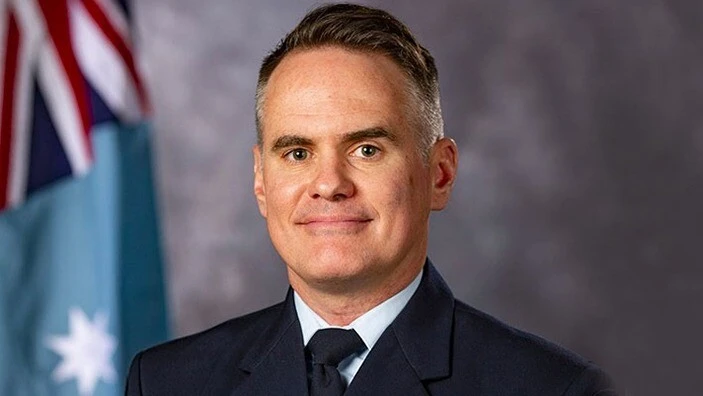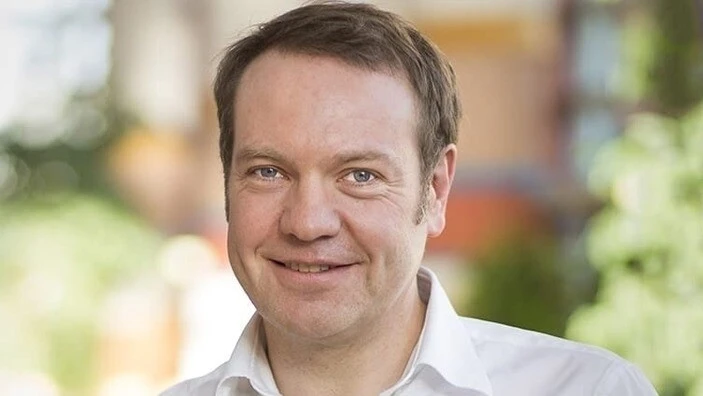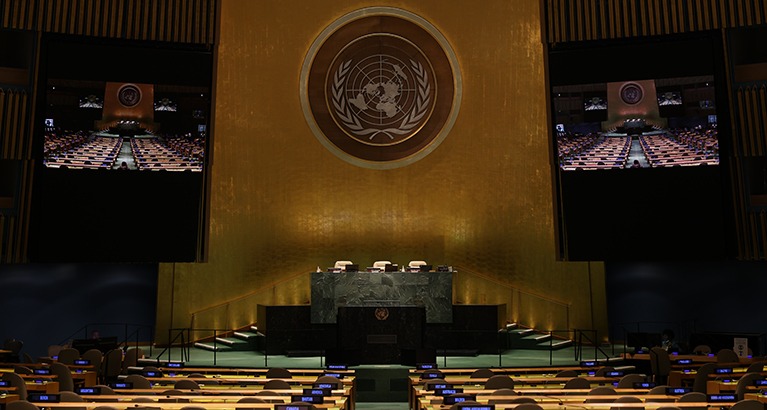A new study from Cambridge Judge Business School published in May argues that recent global crises in Gaza, Ukraine and sub-Saharan Africa demonstrate the urgent need for United Nations reform. The paper calls for a shift in focus toward decision-making capacity and organisational innovation to overcome growing UN paralysis.
By analysing the UN through a meta-organisational lens, the study identifies structural barriers within the international system and suggests a new pathway to reinvigorate global peacekeeping efforts.
[this] multilateral system […] has fallen prey to polarising national interests and decaying provision of funding.
Published in the academic journal Peacebuilding, the study says UN failure in addressing recent crises signals the need for solutions outside of existing multilateral structures, so systemic reform must focus on decision-making and innovation to help the UN meet its admirable goals. The paper draws on organisational theory to examine the challenges facing innovators in so-called meta-organisations like the UN, which are in effect organisations that count autonomous organisations as members, and aim to amplify members’ interests through collective action.
The paper also suggests future avenues for research both theoretical and practical to help usher in a “vital shift in direction for a multilateral system that has fallen prey to polarising national interests and decaying provision of funding”.
Barriers to innovation within the UN system
The study identifies 5 key decision-making challenges facing UN peacekeeping:
1
National caveats issued by troop-contributing countries that curtail their operational activities
2
Divergent identities that reflect a “disparity of shared understandings of what constitutes an ‘ideal’ military peacekeeper”
3
Organisational dynamics such as incompatible training and equipment
4
Challenge in mobilising resources, particularly in pre-deployment stages, because those assets belong to member states and are difficult to quickly mobilise
5
Command and control issues, reflecting the fact that peacekeeping operations have both civilian and military aspects of decision-making authority
Impediments to innovation in UN peacekeeping
Likewise, the challenges in fostering innovation in UN peacekeeping are multifaceted. These include coherent leadership given the size and complexity of the UN and the lack of horizontal integration across UN departments and programmes. There is also a complicated funding structure for UN peacekeeping in which financial resources are drawn from both the regular UN budget and the peacekeeping budget.
In addition, innovation faces obstacles in the form of a reimbursement system that can incentivise national deployment of large troop contingents armed with low-cost equipment, and what the authors term systemic inertia including composition of the UN Security Council (UNSC) whose 5 permanent members are unchanged since the organisation’s inception 80 years ago. “Simply put, the composition, powers and working methods of the UNSC are no longer fit for purpose, and only dramatic reform in this area can arrest the decline in the relevance of global, rules-based multilateralism,” the paper says.
A roadmap for UN reform
“We believe insufficient attention has been directed to the organisational factors underpinning the work of the UN,” the authors conclude. “Viewing the UN system as a meta-organisation opens new avenues of action that could help address some of the fundamental barriers to reform of the international system.
“This reform should focus on work in 2 areas: improving the ability of the multilateral system to make decisions, and to innovate. Put simply, it is increasingly apparent that working within the existing paradigm is unlikely to result in an agile global, rules-based multilateral system capable of addressing ever more complex security challenges.”
Study cites workstreams of the Cambridge Peaceshaping and Climate Lab
The paper is authored by Jarrod Pendlebury, former Australian Military Advisor to the United Nations and Research Fellow at the Cambridge Centre for Social Innovation (CCSI) at Cambridge Judge, Neil Stott, Management Practice Professor of Social Innovation, and Paul Tracey, Professor of Innovation and Organisation.



The study cites the work of the Cambridge Peaceshaping and Climate Lab at the CCSI, a research centre co-directed by Neil and Paul. The Lab aims to bring clarity to the concept of peaceshaping by focusing on dedicated workstreams including climate-related mobility issues (including involuntary movement of people due to floods and other activities linked to climate change) and peacegaming (which draws off military wargaming to improve preparedness and effectiveness).
Featured faculty
Neil Stott
Management Practice Professor of Social Innovation
Paul Tracey
Professor of Innovation and Organisation
Featured research
Pendlebury, J., Stott, N. and Tracey, P. (2025) “The peacekeeper’s challenge: innovation in meta-organisations.” Peacebuilding
Cambridge Centre for Social Innovation
The Cambridge Centre for Social Innovation (CCSI) is one of the research centres at Cambridge Judge Business School. The centre builds best practices across business, civil society, policy and academia for a more sustainable world.





